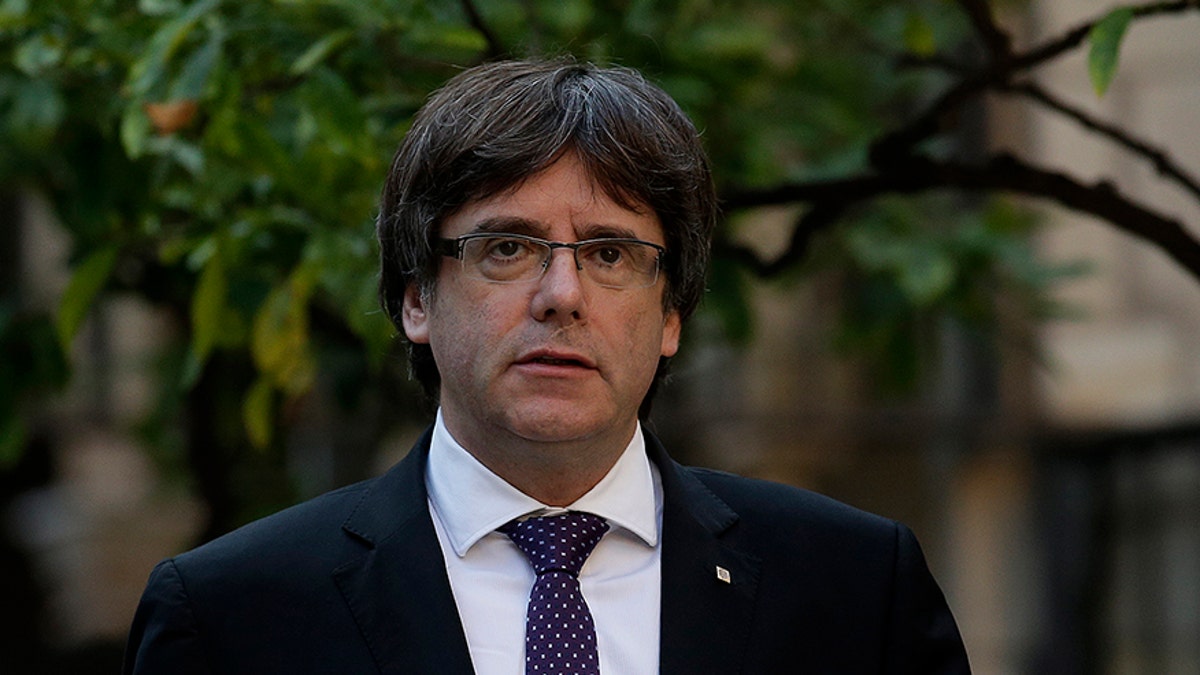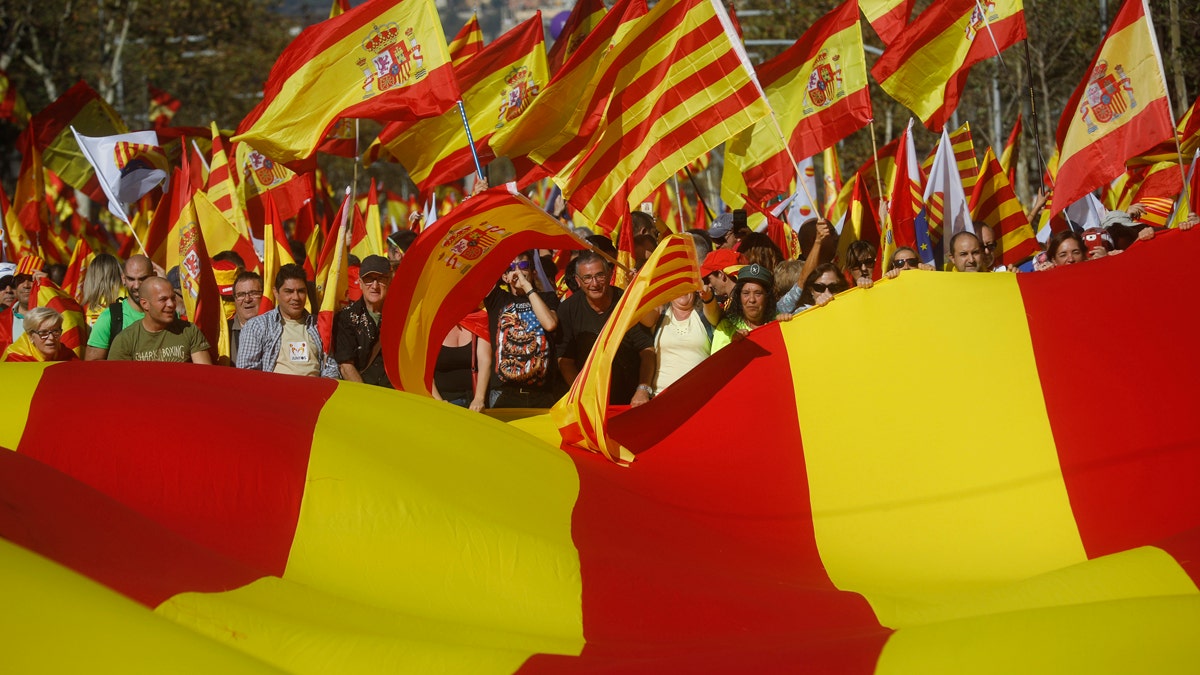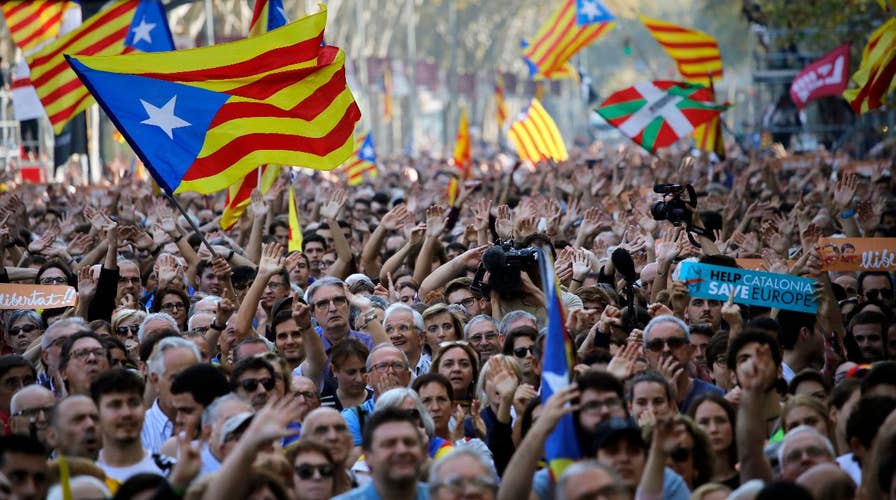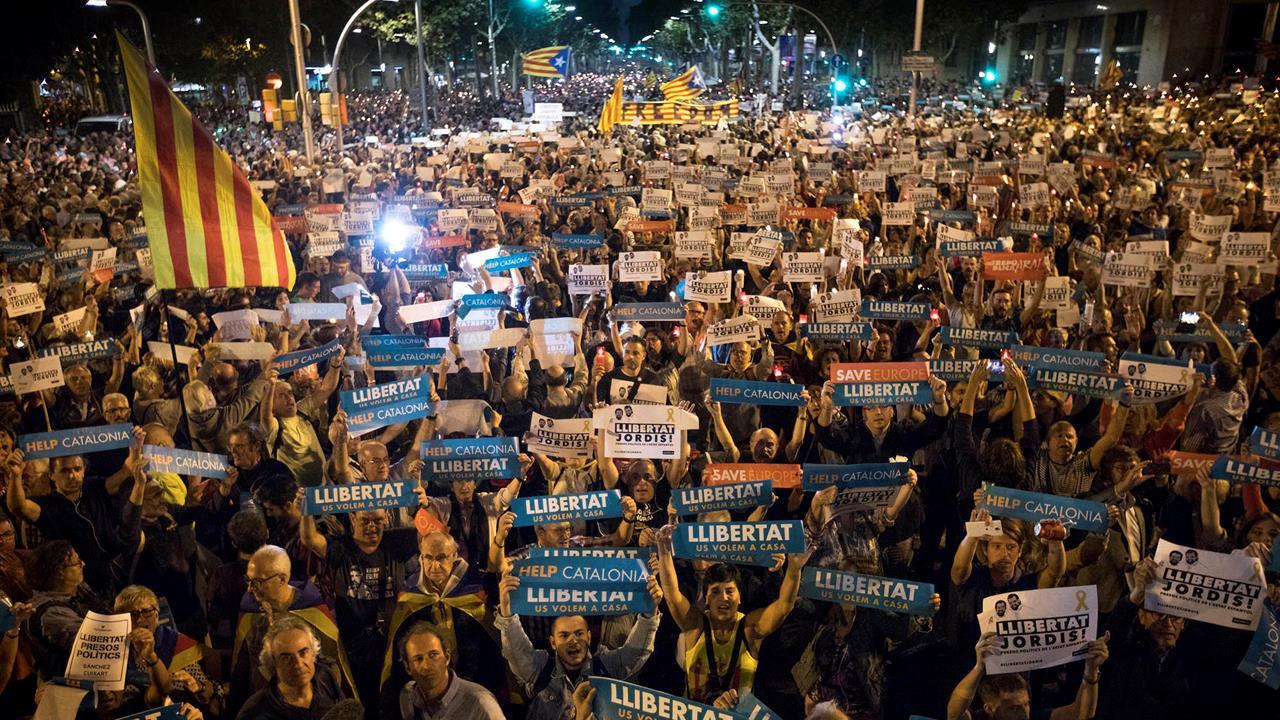Spain votes to take control of Catalonia region
Rich Edson reports on the division within the Spanish government.
Catalans were set to vote Thursday in a highly contested regional election that follows months of unrest and a political standoff against Spain's central government over the region's bid for independence.
But few believe the vote will heal the polarized region.
The new election – to elect 135 representatives to the regional assembly after Spanish Prime Minister Mariano Rajoy sacked the Catalan cabinet and dissolved the parliament in October – was called by authorities in Madrid as a way to suppress a separatist revolt in Spain’s northeastern region.
Fugitive and jailed separatist candidates, who are able to campaign only through video calls or calling in to a radio station from jail, will compete against local lawmakers eager to preserve the union and claim to be the only chance for Catalans to return to stability and prosperity.
Yet just two months ago, Catalans believed they had witnessed the birth of a new republic after a shock referendum that showed the majority of people supporting independence from Spain.
The vote, however, plunged the country to its deepest political crisis since its 1978 return to democracy. Some separatist leaders were jailed or fled the country after the referendum was declared illegal by Spain’s government and highest court.

Carles Puigdemont, the former Catalan regional president, facing up to 30 years in prison if he returns to Spain. (Associated Press)
Multiple pro-independence leaders remain in pre-trial detention for organizing the referendum illegally. Others, meanwhile, face charges of rebellion and sedition, including former Catalan regional President Carles Puigdemont, who left for Belgium. He could spend up to 30 years in prison if he returns to Spain.
The events that unfolded since the referendum have further driven the Catalans apart as they saw the central government using rubber bullets and truncheons against non-violent voters trying to cast their ballots in the referendum.
“What happened on October 1 affected me in a powerful way,” said Gabriel Brau, a 50-year-old photographer with little interest in politics. “I was thinking, ‘What if they did that to my son?’ That is not democracy. ... I don’t want these people to govern my country.”
Brau said he will vote for the first time since 1980s and support a candidate for one of the parties that favor independence.

Protesters in Catalonia. (Associated Press)
“They don’t realize how many people they converted,” said Ana Pousa, 38, who was born in Spain but grew up in Catalonia. She now says she hesitates to call herself Spanish. “Hearing myself saying ‘I’m Spanish’ sounds strange. Because now it means something different.”
But the referendum has also energized previously quiet Catalans supporting the union with Spain. Previously, opposing independence would have prompted insults and accusations of treason from friends and neighbors, but in the aftermath of the referendum, such Catalans are getting louder and more organized.
Cristina Calaco, 51, said she was aghast the way the secessionist leaders forced through the vote in October. “I wanted to pack my bags and leave Catalonia,” she said.
The woman has since been emboldened to voice her pro-union views and allegiance to Spain, shouting “long live Spain” whenever she hears pro-independence activists in protests.
The vote on Thursday is unlikely to heal the divisions in the region, as neither side will show a decisive victory. Pre-election surveys predict parties in both the secessionist and the pro-union blocs will fall short of the majority necessary to form a new government, leaving the region at the crossroads again.
The Associated Press contributed to this report.









































